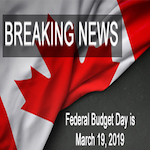Post-Budget Hot Topics: Discuss the Home Buyers’ Plan Now

Christine Steendam
The March 19, 2019 federal budget was released last week, and along with it came a few hot topics advisors should consider discussing with clients now. After all, proposed changes to the Home Buyers’ Plan, stock options, and mutual funds will affect Canadians and their wealth management strategies in the coming years. In this edition of KBR, we’ll take a deeper dive on the RRSP’s Home Buyers’ Plan.
One of the most discussed items to come out of the 2019 federal budget was the proposed changes to the Home Buyers’ Plan. For the RRSP Home Buyers’ Incentive, individuals with savings in their RRSPs will be able to tap into more of their  savings on a tax -free basis under the Home Buyers’ Plan. An increase in withdrawal from $25,000 to $35,000 will be allowed; couples can thus withdraw up to $70,000 under the HBP. The increased withdrawal limit will also apply to the acquisition of a new home to be more accessible to a disabled person. However, the money will need to be repaid in 15 years or added to income, as per existing rules. This change will take effect after March 19, 2019.
savings on a tax -free basis under the Home Buyers’ Plan. An increase in withdrawal from $25,000 to $35,000 will be allowed; couples can thus withdraw up to $70,000 under the HBP. The increased withdrawal limit will also apply to the acquisition of a new home to be more accessible to a disabled person. However, the money will need to be repaid in 15 years or added to income, as per existing rules. This change will take effect after March 19, 2019.
Along with an increase to the limit on RRSP withdrawals within the Home Buyers’ Plan, the federal budget introduced new rules to include couples who experience a relationship breakdown. Effective after 2019, couples who separate or divorce may participate in the Home Buyers’ Plan as individuals even if they don’t otherwise qualify as a first-time buyer.
To qualify, an individual must be living apart from their former spouse or common-law partner at the time of the withdrawal and the separation must have occurred in the current or four preceding years. In addition, the taxpayer may not make a withdrawal if they move into a home owned and occupied by a new spouse or common-law partner. Where the purpose of the HBP withdrawal is not to buy out the share of the residence owned by the former spouse or common-law partner, the former principal residence must be disposed of no later than two years after the HBP withdrawal. Taxpayers who have an existing HBP balance may not make a new HBP plan withdrawal until the former plan withdrawal is repaid.
In an attempt to make buying a first home a little more attainable, the March 2019 federal budget also announced that CMHC will be offering a shared equity mortgage to qualifying home buyers. First-time home buyers whose household income is $120,000 or less may qualify for a CMHC shared equity mortgage of 5% of the cost of an existing home or 10% of the cost of a new home. To qualify, the CMHC insured mortgage plus the CMHC shared equity mortgage must be less than four times their annual income.
There will be no payments or interest accruing on the shared equity mortgage, but it must be repaid when the home is sold. It remains unclear whether the amount to be repaid on sale is the original amount provided by CMHC or a percentage of the sales price equivalent to the percentage of the equity invested. The program details are to be released later, but it is expected to be operational by September 2019.
Information compiled from our Special Budget Report by Christine Steendam, Assistant Publisher at Knowledge Bureau.
Additional educational resources: Were these the items that caught your attention in the March 19, 2019 Federal Budget? How do these changes affect you and your clients? Join us at the Spring CE Summits for a deeper dive into the 2019 Federal Budget and how you can be best prepared to help your clients navigate through these changes.
COPYRIGHT OWNED BY KNOWLEDGE BUREAU INC., 2019.
UNAUTHORIZED REPRODUCTION, IN WHOLE OR IN PART, IS PROHIBITED.
 |
 |
 |
 |
| Refer a Friend |
Research |
Calculators |
Course Trials |
 |
 |
 |
 |